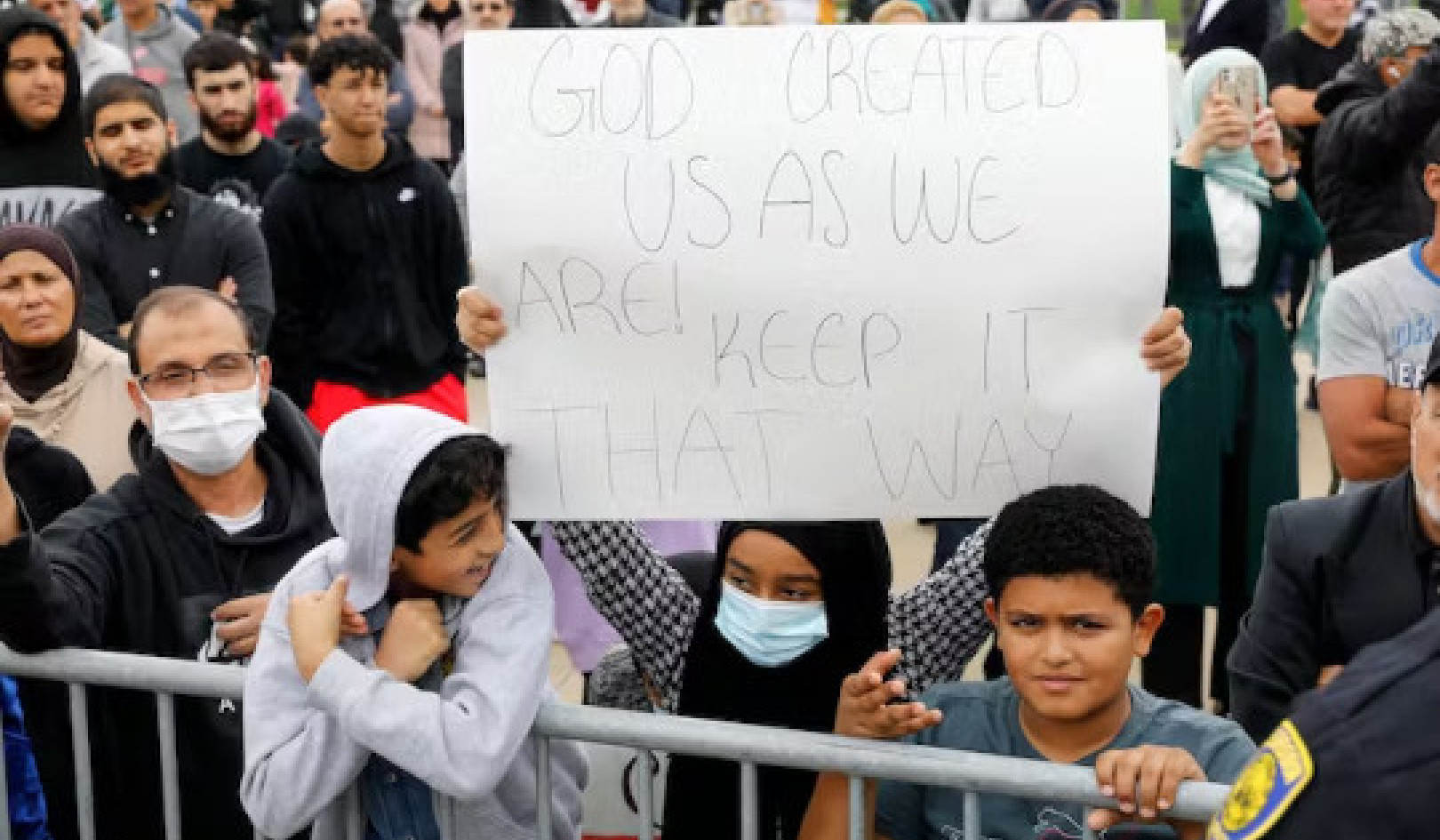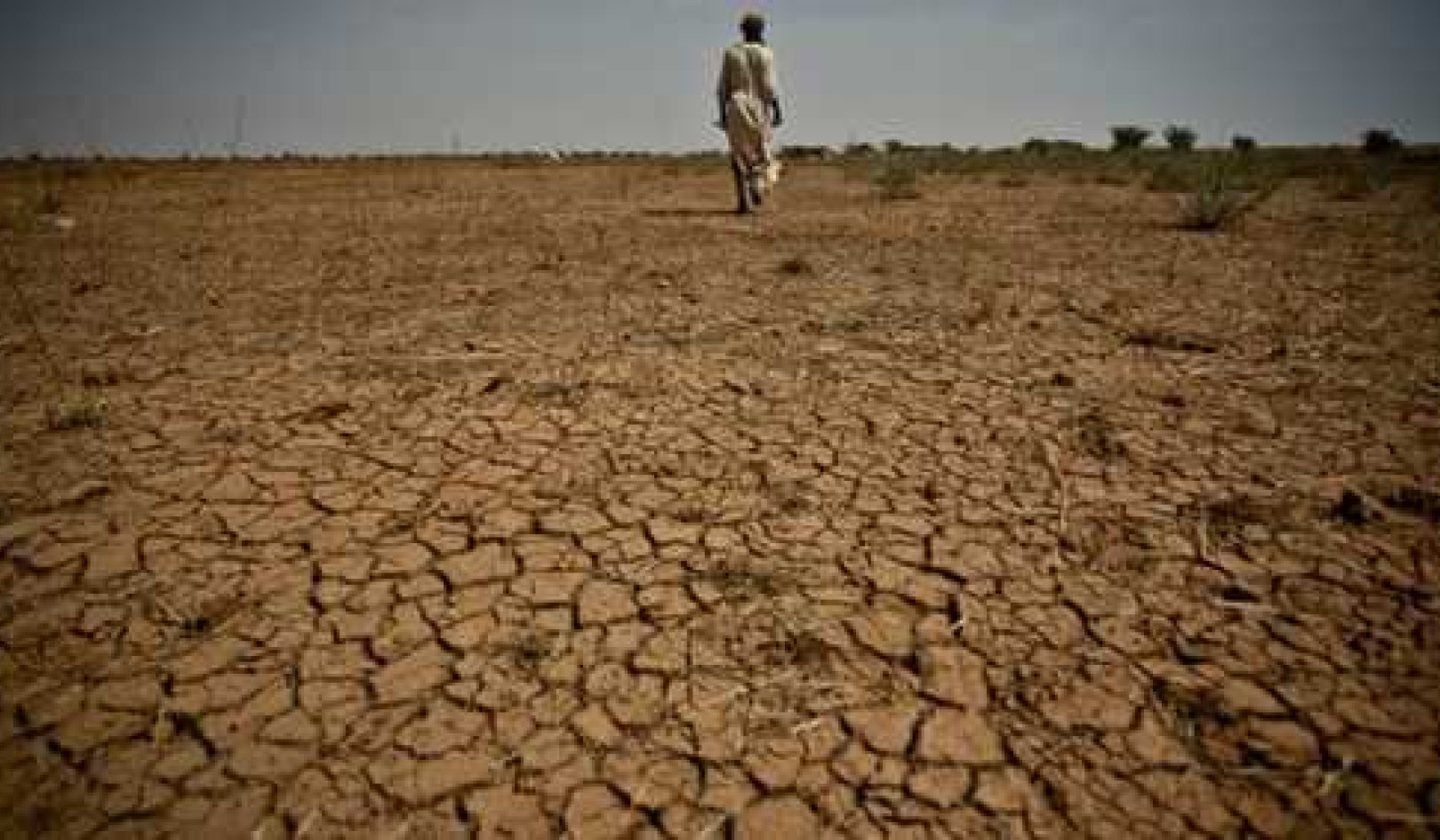
In This Article:
- How would tariffs on all imports affect U.S. consumers and businesses?
- Could mass deportations lead to labor shortages and economic decline?
- What would happen if the Department of Education were abolished?
- How might rolling back climate change efforts damage the economy long-term?
- Will reducing aid to Ukraine hurt U.S. interests and global stability?
How Trump's Radical Policy Changes Will Impact the Economy
by Robert Jennings, InnerSelf.com
As political discourse in the United States becomes more polarized, policy proposals that once seemed extreme are now entering mainstream debates. One presidential candidate has put forward a range of bold initiatives that could dramatically reshape the nation's economy and social structure. These include imposing an across-the-board tariff on all imported goods, deporting millions of immigrants, abolishing the Department of Education, repealing the Biden administration's efforts to combat climate change, pardoning January 6 defendants, initiating politically motivated prosecutions, and reducing aid to Ukraine in its war with Russia, which could weaken U.S. influence in global affairs and destabilize the region.
These proposals address economic growth, national security, and personal freedom concerns. While they may have potential benefits, it's important to consider how the economy would react if such policies were enacted. Understanding their broader implications allows us to anticipate potential economic disruptions and social consequences that could shape America's future.
Imposing Tariffs on All Imported Goods
One of the most far-reaching proposals is to impose an across-the-board tariff on all imported goods. Tariffs are designed to protect domestic industries by raising the cost of imported goods, making locally produced products more competitive. While this may seem like a strategy to bolster American manufacturing, the reality is more complex.
First, tariffs typically lead to higher prices for consumers. Imported goods—electronics, clothing, or household items—become more expensive, causing inflation to rise. Since many everyday items are sourced internationally, this price increase would affect nearly all Americans. Lower-income households, which spend a larger proportion of their income on essentials, would feel the brunt of these increases.
Second, an across-the-board tariff could trigger trade wars. When the U.S. imposes tariffs, other countries often retaliate by placing tariffs on American exports. This tit-for-tat response would harm U.S. industries that rely on exports, such as agriculture, technology, and manufacturing. Farmers, already struggling with tight margins, would face new barriers to selling their products abroad, leading to further economic strain in rural areas.
Additionally, tariffs could result in supply chain disruptions. Many U.S. industries depend on global supply chains for raw materials and components. If tariffs make these imports more expensive, manufacturers may face shortages or increased costs, driving up the prices of domestically produced goods. Rather than boosting the economy, tariffs would likely stifle growth, increase inflation, and reduce consumer purchasing power.
Deporting Millions of Immigrants
Another dramatic proposal is the mass deportation of millions of immigrants. While framed as a solution to reduce illegal immigration and enhance national security, the economic consequences would be severe.
Immigrants comprise a significant portion of the U.S. labor force, particularly in agriculture, construction, hospitality, and healthcare. Deporting millions of immigrants would create labor shortages in these critical industries, pushing up wages and increasing production costs. Farmers would struggle to harvest crops, construction projects would face delays, and the service sector would suffer from understaffing.
Beyond labor market disruptions, mass deportation would reduce the overall population, leading to lower consumer demand. Immigrants contribute to the economy not only by working but also by spending on goods and services. Reducing the population by millions would lower demand for housing, groceries, and consumer products, slowing economic growth. Housing markets could crash as demand plummets in areas with large immigrant populations, leading to reduced property values and an economic downturn.
Abolishing the Department of Education
Another proposed policy is abolishing the Department of Education and shifting responsibility for education entirely to the states. Advocates of this policy argue that it would increase local control and reduce federal bureaucracy. However, the implications for education and the economy would be profound.
Without federal oversight, inequalities in education would likely worsen. Wealthier states or districts could maintain high-quality schools, while poorer regions would struggle to fund even basic educational needs. This would deepen the academic divide between rich and poor, with long-term consequences for social mobility and economic opportunity.
The economy relies on a well-educated workforce. Weakening the public education system would jeopardize the U.S.'s ability to compete in the global market. Over time, a less-educated population would reduce the country's capacity for innovation and productivity, undermining sectors that require skilled labor, such as technology, healthcare, and advanced manufacturing. Additionally, states with limited resources would face budget crises as they scramble to fund education without federal assistance.
Repealing Climate Change Efforts
The proposal to repeal the Biden administration's climate change efforts would also have significant and concerning economic repercussions. In the short term, removing environmental regulations might boost the fossil fuel industry by reducing costs for oil, gas, and coal producers. However, this approach would lead to severe long-term damage.
First, ignoring climate change would increase the frequency and severity of natural disasters such as hurricanes, floods, and wildfires. These disasters have enormous economic costs, affecting infrastructure, agriculture, and insurance markets. As climate-related risks grow, the federal government must spend more on disaster relief and recovery efforts, further straining the national budget.
Second, repealing climate policies would cause the U.S. to fall behind in the clean energy transition. While other countries invest in renewable energy, the U.S. would remain tied to fossil fuels, missing out on the job creation, technological innovation, and economic growth associated with green industries. In the global race toward a sustainable future, America would risk becoming a laggard, forfeiting its leadership position in emerging energy markets.
Pardoning January 6 Defendants and Politically Motivated Prosecutions
On the political front, the proposed pardoning of January 6 defendants and launching politically motivated prosecutions against opponents could destabilize the economy. The strength of the U.S. economy depends, in part, on the country's political stability and respect for the rule of law. Actions that undermine these foundations could lead to uncertainty in financial markets.
Reducing aid to Ukraine could have significant economic and stability implications. The strength of the U.S. economy depends, in part, on the country's political stability and respect for the rule of law. Actions that undermine these foundations could lead to uncertainty in financial markets.
Additionally, if political instability grows, consumer confidence could be shaken. People may delay large purchases or investment decisions, fearing that political turbulence will worsen. When consumer confidence drops, spending slows, reducing overall economic growth.
Reducing Aid to Ukraine in the Fight Against Russia
The proposal to reduce aid to Ukraine in its conflict with Russia could have ripple effects throughout the global economy, particularly in the energy and defense sectors.
First, reducing support for Ukraine could embolden Russia, potentially leading to greater instability in Europe. Europe is a crucial trading partner for the U.S.; any regional disruption would affect global trade and economic growth. Moreover, Europe relies heavily on Russian natural gas, and further conflict could disrupt the energy market, causing prices to spike. Higher energy costs would hurt European and American consumers and businesses, slowing economic growth on both sides of the Atlantic.
Second, the U.S. defense industry has benefited from supplying aid to Ukraine, particularly military equipment. Reducing this aid could slow down demand for U.S.-made defense products, potentially resulting in job losses and a contraction in the defense sector.
While these proposed policies may resonate with specific segments of the population, their economic impact would be far-reaching and largely damaging. The combined effects of tariffs, deportations, the abolition of the Department of Education, the rollback of climate policies, political instability, and reduced international aid could lead to inflation, labor shortages, slower economic growth, and increased uncertainty in both domestic and global markets.
Economic stability relies on balanced, well-considered policies that account for the complex interactions between labor, trade, education, and international relations. Radical, unilateral actions—particularly those that undermine institutions, reduce investment in human capital, and alienate global allies—could jeopardize the economy and the country's social fabric.
As we approach the 2024 election, evaluating the long-term consequences of policy proposals is essential. While bold actions may promise quick fixes, the cost to the economy and society may be far greater than anticipated. In this pivotal moment, the need for thoughtful, sustainable leadership has never been more critical.
Article Recap:
This article explores the economic impact of radical policy changes, including tariffs, mass deportations, and ending climate policies. The potential consequences include inflation, labor shortages, weakened global relations, and economic instability.
About the Author
 Robert Jennings is co-publisher of InnerSelf.com with his wife Marie T Russell. He attended the University of Florida, Southern Technical Institute, and the University of Central Florida with studies in real estate, urban development, finance, architectural engineering, and elementary education. He was a member of the US Marine Corps and The US Army having commanded a field artillery battery in Germany. He worked in real estate finance, construction and development for 25 years before starting InnerSelf.com in 1996.
Robert Jennings is co-publisher of InnerSelf.com with his wife Marie T Russell. He attended the University of Florida, Southern Technical Institute, and the University of Central Florida with studies in real estate, urban development, finance, architectural engineering, and elementary education. He was a member of the US Marine Corps and The US Army having commanded a field artillery battery in Germany. He worked in real estate finance, construction and development for 25 years before starting InnerSelf.com in 1996.
InnerSelf is dedicated to sharing information that allows people to make educated and insightful choices in their personal life, for the good of the commons, and for the well-being of the planet. InnerSelf Magazine is in its 30+year of publication in either print (1984-1995) or online as InnerSelf.com. Please support our work.
Creative Commons 4.0
This article is licensed under a Creative Commons Attribution-Share Alike 4.0 License. Attribute the author Robert Jennings, InnerSelf.com. Link back to the article This article originally appeared on InnerSelf.com
Recommended books:
Capital in the Twenty-First Century
by Thomas Piketty. (Translated by Arthur Goldhammer)
 In Capital in the Twenty-First Century, Thomas Piketty analyzes a unique collection of data from twenty countries, ranging as far back as the eighteenth century, to uncover key economic and social patterns. But economic trends are not acts of God. Political action has curbed dangerous inequalities in the past, says Thomas Piketty, and may do so again. A work of extraordinary ambition, originality, and rigor, Capital in the Twenty-First Century reorients our understanding of economic history and confronts us with sobering lessons for today. His findings will transform debate and set the agenda for the next generation of thought about wealth and inequality.
In Capital in the Twenty-First Century, Thomas Piketty analyzes a unique collection of data from twenty countries, ranging as far back as the eighteenth century, to uncover key economic and social patterns. But economic trends are not acts of God. Political action has curbed dangerous inequalities in the past, says Thomas Piketty, and may do so again. A work of extraordinary ambition, originality, and rigor, Capital in the Twenty-First Century reorients our understanding of economic history and confronts us with sobering lessons for today. His findings will transform debate and set the agenda for the next generation of thought about wealth and inequality.
Click here for more info and/or to order this book on Amazon.
Nature's Fortune: How Business and Society Thrive by Investing in Nature
by Mark R. Tercek and Jonathan S. Adams.
 What is nature worth? The answer to this question—which traditionally has been framed in environmental terms—is revolutionizing the way we do business. In Nature’s Fortune, Mark Tercek, CEO of The Nature Conservancy and former investment banker, and science writer Jonathan Adams argue that nature is not only the foundation of human well-being, but also the smartest commercial investment any business or government can make. The forests, floodplains, and oyster reefs often seen simply as raw materials or as obstacles to be cleared in the name of progress are, in fact as important to our future prosperity as technology or law or business innovation. Nature’s Fortune offers an essential guide to the world’s economic—and environmental—well-being.
What is nature worth? The answer to this question—which traditionally has been framed in environmental terms—is revolutionizing the way we do business. In Nature’s Fortune, Mark Tercek, CEO of The Nature Conservancy and former investment banker, and science writer Jonathan Adams argue that nature is not only the foundation of human well-being, but also the smartest commercial investment any business or government can make. The forests, floodplains, and oyster reefs often seen simply as raw materials or as obstacles to be cleared in the name of progress are, in fact as important to our future prosperity as technology or law or business innovation. Nature’s Fortune offers an essential guide to the world’s economic—and environmental—well-being.
Click here for more info and/or to order this book on Amazon.
Beyond Outrage: What has gone wrong with our economy and our democracy, and how to fix it -- by Robert B. Reich
 In this timely book, Robert B. Reich argues that nothing good happens in Washington unless citizens are energized and organized to make sure Washington acts in the public good. The first step is to see the big picture. Beyond Outrage connects the dots, showing why the increasing share of income and wealth going to the top has hobbled jobs and growth for everyone else, undermining our democracy; caused Americans to become increasingly cynical about public life; and turned many Americans against one another. He also explains why the proposals of the “regressive right” are dead wrong and provides a clear roadmap of what must be done instead. Here’s a plan for action for everyone who cares about the future of America.
In this timely book, Robert B. Reich argues that nothing good happens in Washington unless citizens are energized and organized to make sure Washington acts in the public good. The first step is to see the big picture. Beyond Outrage connects the dots, showing why the increasing share of income and wealth going to the top has hobbled jobs and growth for everyone else, undermining our democracy; caused Americans to become increasingly cynical about public life; and turned many Americans against one another. He also explains why the proposals of the “regressive right” are dead wrong and provides a clear roadmap of what must be done instead. Here’s a plan for action for everyone who cares about the future of America.
Click here for more info or to order this book on Amazon.
This Changes Everything: Occupy Wall Street and the 99% Movement
by Sarah van Gelder and staff of YES! Magazine.
 This Changes Everything shows how the Occupy movement is shifting the way people view themselves and the world, the kind of society they believe is possible, and their own involvement in creating a society that works for the 99% rather than just the 1%. Attempts to pigeonhole this decentralized, fast-evolving movement have led to confusion and misperception. In this volume, the editors of YES! Magazine bring together voices from inside and outside the protests to convey the issues, possibilities, and personalities associated with the Occupy Wall Street movement. This book features contributions from Naomi Klein, David Korten, Rebecca Solnit, Ralph Nader, and others, as well as Occupy activists who were there from the beginning.
This Changes Everything shows how the Occupy movement is shifting the way people view themselves and the world, the kind of society they believe is possible, and their own involvement in creating a society that works for the 99% rather than just the 1%. Attempts to pigeonhole this decentralized, fast-evolving movement have led to confusion and misperception. In this volume, the editors of YES! Magazine bring together voices from inside and outside the protests to convey the issues, possibilities, and personalities associated with the Occupy Wall Street movement. This book features contributions from Naomi Klein, David Korten, Rebecca Solnit, Ralph Nader, and others, as well as Occupy activists who were there from the beginning.
Click here for more info and/or to order this book on Amazon.
































